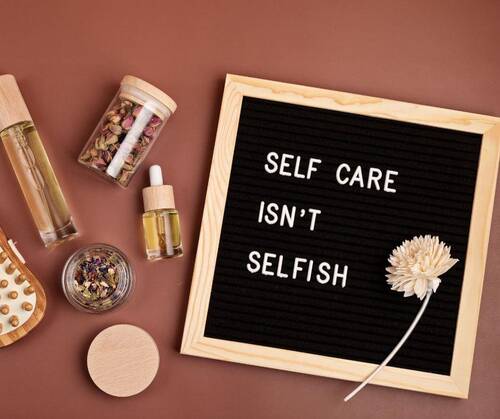
14 Nov The Connection Between Sobriety and Mental Health: A Supportive Guide
Call 1-800-662-HELP (4357)Individuals seeking treatment or substance use support for themselves or a loved one can call the toll-free PA Get Help Now helpline at 1-800-662-HELP (4357). The free, confidential hotline is available 24 hours a day, 365 days a year, and staffed by trained professionals.
The journey to sobriety is not just about quitting alcohol or drugs, it is also about rebuilding your mental health. Sobriety and mental health are deeply connected. Living a sober life can greatly impact your mental health and overall well-being, including emotional health, physical health and quality of life.

Being sober allows your mind to heal, promoting better mental health and emotional stability. This article explores the link between sobriety and mental health and how self-care plays a role in maintaining your mental health, addiction treatment and recovery.
How Sobriety Improves Mental Health
When an individual chooses to embrace sobriety, the body and mind start to recover from the effects and damage caused by substance use. Drug and alcohol abuse damages an individual’s mental health, which may lead to conditions like anxiety and depression. Once you stop using these substances, the body begins to heal, and with time, you can notice physical and psychological improvements.
Some of the ways in which sobriety improves mental health include:

Emotional Stability
Substance use causes many emotional fluctuations. Once an individual gains sobriety, they experience a more balanced mood. Emotional stability is crucial for mental health, as it helps you go through your daily activities with a clear mind, making it easier for you to process your emotions.
Improved Physical and Mental Health
Sobriety not only affects your mind but also your entire body. When an individual stops using substances like drugs and alcohol, they can reduce the risk of developing chronic diseases like heart disease, lung disease or stroke and improve their overall health. With time, you may notice improvements in your physical health, and your mental health may improve as well.
What Is Self Care? And Why Is It Important?
Self-care refers to activities that promote mental, physical, social, and spiritual health. It is important because it helps you manage stress, lower your risk of illness and prevent burnout.
According to the World Health Organization, self-care is essential for maintaining physical and mental health. People engage in forms of self-care every day, such as eating healthy food, exercising, or maintaining hygiene. Self-care does not have to be a solo activity, support groups or friends and family also have a role to play.
Types of Self-Care
There are 4 types of self-care. They include:

1. Physical Self-Care
Physical self-care is taking care of your body’s health. It involves activities like eating healthy, exercising regularly and other activities that promote physical health. Self-care tips for physical health include:
- Exercising Regularly: Including activities like walking, jogging, or going to the gym into your routine can keep your body fit. Physical activity boosts an individual’s energy levels, improves your mood, and helps you manage stress.
- Eating Healthy Foods: A balanced diet filled with fresh fruits, leafy vegetables, whole grains, and protein can improve health and prevent chronic diseases.
- Adequate Sleep: Getting adequate sleep each night, like 7 or 8 hours, is recommended. Quality sleep improves your emotional health and helps you to cope with daily stressors.
- Staying Hydrated: Drinking plenty of water is good for maintaining physical health. It makes your body function properly and keeps your skin moist and healthy.
2. Mental Self-care
How an individual thinks or the things they feed their mind can greatly influence mental health. Mental self-care involves doing things that keep your mind sharp and engaged. Mental self-care tips include:
- Practicing Mindfulness: Engaging in mindfulness activities like meditation can help you manage anxiety when faced with stressful situations.
- Engaging in Hobbies: Spending time doing the things you enjoy, like painting or gardening, can stimulate your mind and relieve stress, enhancing your mental health.
- Setting Boundaries: Learning how to say no and setting healthy boundaries can prevent burnout and reduce stress.
3. Social Self-Care
Human beings are meant to be social, and nurturing your relationships is essential for mental health. Social self-care is about creating meaningful connections with others. Support from friends, family, or community groups can help you face life’s challenges. Below are social self-care tips:
- Spending Quality Time With People Dear to You: Regularly spend time with friends and family through audio calls, video calls, or face-to-face interactions. This can help you feel supported and cared for.
- Join Support Groups: Participating in social or support groups can provide the emotional support you need, especially if you are dealing with a challenge like mental illness or addiction recovery.
- Build New Connections: Reach out to people and create new friendships. A strong social support network can make a difference.
Social support is important, but sometimes it may not be enough. Contacting mental health professionals can be crucial in your recovery process. Therapists can offer guidance, self-monitoring strategies and support for managing mental health issues.
4. Spiritual Self-Care
Spiritual self-care focuses on nourishing your spirit. It is not only about religion. It can be activities that bring you peace and promote your emotional stability. Spiritual self-care tips include:
- Practicing meditation
- Spending time in nature
- Engaging in self-reflection
- Regularly expressing gratitude
What Are the Benefits of Self-Care?
Self-care offers many benefits. Here are some of the key benefits:

- Improved Physical Health: Regular exercise, eating a balanced diet, and getting adequate sleep strengthen the immune system.
- Enhanced Mental and Emotional Well-Being: Self-care can help reduce stress and anxiety, promoting better mental health and emotional stability.
- Prevention of Burnout: When individuals prioritize self-care, they can prevent burnout caused by prolonged stress.
- Increased Self-Esteem and Self-Worth: Self-care practices can boost self-esteem. By prioritizing your needs and doing things that you enjoy, you can love yourself more.
- Increased Productivity: Taking care of yourself recharges your energy, which in turn makes you more productive and helps you develop better problem-solving abilities.
- Better Relationships: When you take good care of yourself, you are in a good mental, emotional, and physical state. This enables you to develop better relationships with other people.
Self-care is important. With good nutrition, physical activities, and adequate sleep, your body can function properly.
Meeting Your Self Care Needs Will Promote Health and Well Being
The journey to sobriety, at a Massachusetts drug rehab center, involves abstaining from drugs and alcohol and reclaiming your mental health and overall well-being. You can create a peaceful and meaningful life by focusing on self-care, physical and mental health and building a strong support system. Remember, every step you take toward sobriety is a step toward a healthier, happier you.
——————
Call 1-800-662-HELP (4357)Individuals seeking treatment or substance use support for themselves or a loved one can call the toll-free PA Get Help Now helpline at 1-800-662-HELP (4357). The free, confidential hotline is available 24 hours a day, 365 days a year, and staffed by trained professionals.
If you have experienced suicidal thoughts or have lost someone to suicide and want to seek help, you can contact the Crisis Text Line by texting “START” to 741-741 or call the Suicide Prevention Lifeline at 800-273-8255.
The information on MedicalResearch.com is provided for educational purposes only, and is in no way intended to diagnose, cure, or treat any medical or other condition.
Some links may be sponsored. Products are not warranted or endorsed.
Always seek the advice of your physician or other qualified health and ask your doctor any questions you may have regarding a medical condition. In addition to all other limitations and disclaimers in this agreement, service provider and its third party providers disclaim any liability or loss in connection with the content provided on this website.
Last Updated on November 25, 2024 by Marie Benz MD FAAD
